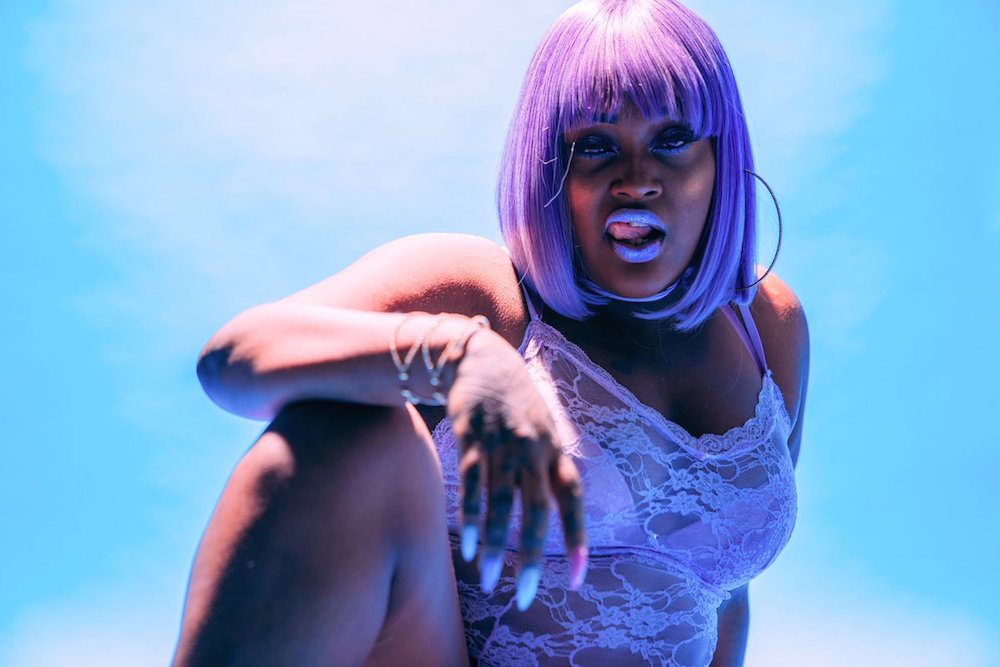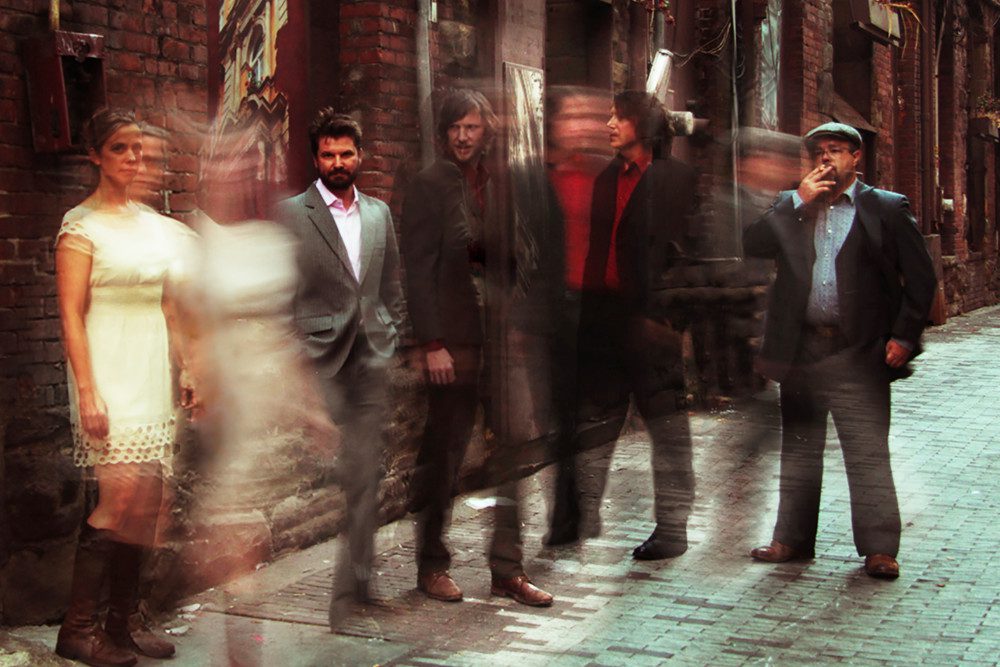ONLY NOISE: Kacey Musgraves Still Speaks to Me with Golden Hour, a Year After its Release

ONLY NOISE explores music fandom with poignant personal essays that examine the ways we’re shaped by our chosen soundtrack. This week, Cillea Houghton delves into her personal connection with Kacey Musgraves’ ground-breaking Golden Hour, a year after its release (and several Grammys later).
Watching Kacey Musgraves take home the Album of the Year Grammy for Golden Hour was a moment I can only compare to a football fan watching their team win the Super Bowl. When I listened to it for the first time, I had a gut feeling it would be one of the best albums I’d ever hear in my life and knew I would find meaning in it 10, 20 years in the future. I also had an instinct that it would earn her a lot of praise, and felt vindicated when it did, especially significant seeing as she did it with little to no support from country radio. Golden Hour felt like a full circle moment in a way, as it had me thinking about the beginning of my journey with Kacey many years ago, hearing “Merry Go ‘Round” for the first time, not yet knowing the breadth of her artistry and how it would affect my life. She has a special gift of capturing the raw, honest truth about life that most people may not consider or ignore altogether, and Golden Hour is her finest example of that gift. My initial review only touched the surface of this powerful album that I’ve since developed such a strong bond with; in the year since its release I’ve come back to revel in its beauty again and again.
My introduction to Musgraves is burned into my memory. I can still feel myself sitting in the passenger seat of our family mini van, my mom driving us home after she picked me up one Friday afternoon during my sophomore year of college. I had the radio on the country station and we’d just made it over the Sagamore Bridge when I heard the opening banjo lick to a new song that instantly grabbed me. A woman’s voice came pouring through the speakers, and I was enamored as she sang “If you ain’t got two kids by 21, you’re probably gonna die alone, at least that’s what tradition told you.”
A few weeks later during a weekend visit at my cousin Jacquie’s house, I learn that this captivating song was “Merry Go ‘Round” by Kacey Musgraves. I told Jacquie how much I liked it, and she said I needed to listen to the whole album because it was so good. She played Same Trailer Different Park for us while we were getting ready to go out for the evening and I remember being so intrigued by each track. It sounded so different from anything else I’d heard; the melodies were warm, but her lyrics provided such a sharp, real world perspective that I hadn’t been introduced to in the music I was listening to through my 19 years of life. There was something about Musgraves that resonated with me. The album quickly made it into my heavy rotation – I was particularly drawn to “Dandelion” and “Keep it to Yourself” for their gentle melodies and honest lyrics, but respected the realism of “Blowin’ Smoke.” I was struck by her boldness in “Follow Your Arrow” and applauded her weed references and celebration of LGBTQ inclusion.
This was merely the beginning of my journey with an artist that would deeply impact with me. “Merry Go ‘Round” has taken on new meaning as I look back on it with a refined perspective. She makes me think of all the people who did settle like dust in their hometowns, and I revere how she presents these thought-provoking observations in a non-derogatory way. She doesn’t cast judgment on the people she’s singing about, but rather makes keen observations about life and conveys them in a way that’s universally applicable. Musgraves takes real risks in her songwriting, and it’s inspiring to see that her conviction has earned her acclaim from all walks of life.
Her second album, Pageant Material, grew on me more slowly. Though I loved “Biscuits,” I viewed it as sequel to “Follow Your Arrow” and unfairly judged the album based on that one song. Some three years after its 2015 release, I fully immersed myself in in the album, saw how dynamic it is, and discovered how much I had misjudged it. I fell in love with the melody and her IDGAF attitude on the title track, appreciating how she stands up for those who will never be deemed “perfect” in a world where this unachievable ideal is forced upon women from the day we’re born. “High Time” is a gem, while the line “had to get away so I could grow but it don’t matter where I’m going, I still call my home town home” from “Dime Store Cowgirl” always sticks with me. I’ve lived these words, moving away from my tight-knit family in Massachusetts to chase my dreams in Nashville, but still hold tight to my New England identity. She brings to mind fond memories with my family on “Late to the Party,” the sentiment of the song making me envision all of us laughing and enjoying each other’s company at our favorite local bar. I was awestruck by the sorely underrated “Fine” and the way she wrote such a timeless, melancholy song about the longing feeling of missing someone. It makes me think of how my grandmother must feel about my grandfather, missing her husband of more than 60 years every day in the wake of his passing. And I think the fact that she chose to cover the lost Willie Nelson song, “Are You Sure” instead of one of his hits, and that he willingly offered to sing it with her, is just one small example of how she’s a true original.
But I didn’t realize music could be so pure until I heard Golden Hour. When I heard “Space Cowboy” and “Butterflies” in the months before the album’s release, I knew they were a strong indication that Musgraves was going to gift us something incredible. But little did I know just how much the album would enlighten me. From the moment I pressed play on “Slow Burn,” I was stunned. Hearing her sing “old soul waiting my turn, I know a few things but I still got a lot to learn,” is the moment I bonded with her on a soul level. I often find myself using the term “slow burn” now in conversation, particularly as I contemplate my own life and how things tend to happen when they’re meant to. I’ve always been a late bloomer and not one to keep up with the pace of my peers. I come into things in my own time and I appreciate how the song speaks to that so viscerally.
I had never heard an album that reflected so many emotions I’ve experienced, but haven’t put into words. I’m in awe of the way she captures our existential existence in “Oh What a World.” How she managed to convey so brilliantly the overwhelming magnificence of the universe in such a simple and compelling way, I’ll never know. And I hold in high regard her ability to communicate such a specific feeling as that brief interval in time between a fleeting moment of happiness that’s immediately followed by sadness. It makes me think of my childhood and how excited I would get (and still do) about visiting my family, going to bed on Christmas Day, or coming down from a euphoric concert, feeling grateful for those special moments and also sorrow in knowing that they’re over.
I’ve identified with every aspect of “Lonely Weekend.” I know how it feels to have those lonely days when it seems like everyone else is out in the world enjoying life while I’m home alone. It was reassuring to hear someone touch on an insecurity I’ve often felt, but also acknowledge that it’s okay to have those days of solitude. And I admire how gracious she is in “Space Cowboy.” Most breakup songs carry an essence of bitterness, but Musgraves is the bigger person in this scenario. There’s a selflessness she brings to the act of letting someone go when you know it’s the right decision.
She brought me to tears with “Mother,” the way she so thoughtfully and beautifully conveyed the overwhelming emotion of the world while simultaneously tying generations of people together in just a few words. The way she expressed missing her mother, who was sitting miles away thinking of her mom, reminded me of how much I miss my own mother and grandmother being 1,000 miles away from them. And though they see each other every few weeks, I know they still miss each other. It also made me wonder how often my grandmother thinks of her mother who passed away years ago, one she wrote a poem about when she was 13 years old regarding the passage of time and watching her mother’s hair turn gray. I know she must miss her no matter how many years go by. With just 11 lines, Musgraves made me ponder my relationship with two of the most influential women in my life and the connections they have with their own mothers. Serendipitously, just before she performed “Mother” at the Ryman Auditorium, I was thinking about how my mom and grandma would enjoy her music and her stage show, my eyes welling with tears as I sat in the pew.
What I learned about Musgraves through Golden Hour is that she is truly a woman of her word. In an interview prior to the album’s release, she philosophizes about feeling her way through the music and being inspired by the beauty of the world after experiencing the solar eclipse. She detailed all the characters we’d see and be able to relate to, without any bullshit. Golden Hour is a marvel in that way – transcending earth while being incredibly grounded at the same time, just like Kacey herself.
Musgraves proved to the world that it is possible to take simple and honest thoughts and transform them into profound art. I love how Golden Hour connects with people on so many different levels, and I always feel a glimmer of pride when I hear one of her songs out in the world, whether on my local roots music station, hearing “High Horse” coming from the speakers at a strip mall or someone blasting “Slow Burn” from their car with the windows down. I can’t remember the last time I connected this intensely with a body of music, and that’s a personal revelation I’m so thankful I got to share with Kacey when I fulfilled one of my ultimate dreams of meeting her.
It’s rare that I want to share an artist’s music with every person in my life because I know they’ll gain something meaningful from it, but that’s what Kacey Musgraves does for me. She created an album that touched my soul because it stemmed from her own, and I’m so inspired by how she owned her truth in every way and made a project that was so genuine and personal to her, not knowing if it would be commercially viable. She taught me that magic exists and music born from sincerity can reach beyond the stratosphere. Thus far, this journey has made me understand that I want to live my life the way Kacey Musgraves creates art: vulnerable, observant, sincere, fearless, truthful yet compassionate, grounded while seeing the world from a grand perspective, and above all, pure.




